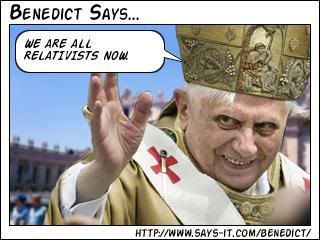Are human beings "theotropic?"

On the subject of the "religious left" I tend to be a little skeptical. To me it sounds too much like a knee-jerk response--and one that seems to be missing the point in any case. The problem with the religious right is that it constitutes a dangerous admixture of religion and politics in a secular liberal democracy (a secular liberal democracy based in part on the principle that it is the separation of church and state that guarantees religious liberty), and I'm not sure that inventing a "friendlier" admixture of religion and politics is much of a solution. (Nor, incidentally, is this disturbing attempt to drive a wedge between religious and non-religious enemies of the religious right that this "religious left" phenomenon appears to represent.)
A new book from "Spiritual Progressive" Rabbi Michael Lerner purports to provide "an alternate solution to both the intolerant and militarist politics of the Right and the current misguided, visionless, and often spiritually empty politics of the Left." One grab in particular caught my eye:
What the secular left and the Democratic Party have failed to understand, Lerner argues, is that "human beings are theotropic -- they turn toward the sacred -- and that dimension in us cannot be fully extinguished. People feel a near-desperate desire to reconnect to the sacred, to find some way to unite their lives with a higher meaning and purpose and in particular to that aspect of the sacred that is built upon the loving, kind, and generous energy in the universe that I describe as the `Left Hand of God.' "Now, I must confess that to me this sounds like a big smelly pile of special pleading (though perhaps that's just my "scientistic form of rationalism" speaking). That most people have a religious affiliation of some kind is undeniable--Richard Dawkins remarked that "Religion shows a pattern of heredity which I think is similar to genetic heredity"--but this does not mean that religiosity is part of a human being's essential make up, any more than the propensity to build cities and towns, or even write blogs, is essential to being human. (Is there a name for this kind of fallacy?) Nor does he provide any evidence for the existence of this "loving, kind, and generous energy in the universe" of which he speaks--and if the secular left are given no more reason for believing in the existence of this energy than they might in the little green goblins in orbit around Alpha Centauri, how exactly can they be said to have "failed to understand" it? (Or have they simply "failed to understand" that belief in the existence of lovingkindgenerous energy is widespread--more, perhaps, than is reasonable. I'm sure they get it by now. Are they supposed to believe in it, too?)
Not being familiar with this "theotropic" concept, I did what any scholar would do and Googled it. The term turns up in a speech given by Irving Kristol in 1994, in which he maintains that the collapse of Communism in Russia can be attributed to the idea that "all people, everywhere, at all times, by their very human nature, are 'theotropic' beings who cannot live for long without having a transcendental dimension to their lives." Indeed, the extent to which the neoconservative Kristol's polemic against secularism parallels that of the "spiritual progressive" Lerner is noteworthy. (Kristol himself remarks: "The counterculture rejoinder to the rationalist is always something like, 'You just don't understand.' That is not, technically, an argument but it is a powerful and, for some, persuasive way of ending the discussion.") Could it be that the "religious left" (at least, according to Lerner), is not just a cynical grab for the evangelical vote, but a cynically Straussian grab for the evangelical vote? Or am I being unfair?

















|